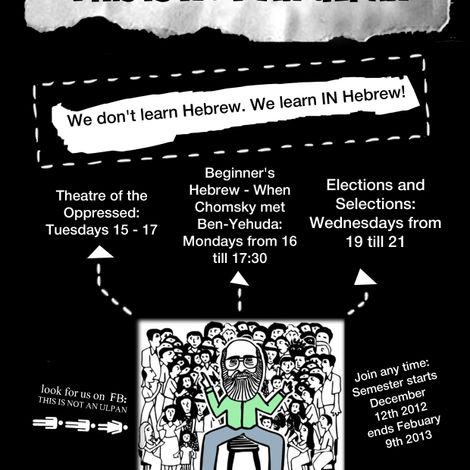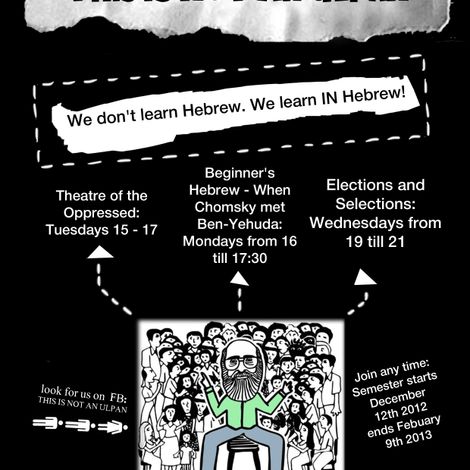This is Not an Ulpan


We aren't learning Hebrew, we are learning in Hebrew.
Hebrew is one of the most important ways that we engage with our culture and my people. Language and culture affect each other and so we want to create a meaningful way to explore that process in Israel, with diverse peoples who find themselves here, with the challenge of navigating the world in Hebrew.
Traditional Ulpan spaces tend to view the learner, as Paulo Freire would put it, as a bank account ready for a knowledge deposit. In fact, the word “Ulpan” is actually derived from an ancient connection that the letter Aleph (א), the first letter in the word Ulpan, has to Bulls. Yes, the animal. The term, as it is used in Modern Hebrew, refers to breaking down of the students in order to retrain them; like you might retrain, or tame, a bull.
In order to teach the art of conversation and dialogue we need to use conversation and dialogue in the lessons, but forced conversation based on out of touch text book excerpts won't cut it. What's needed is space for learners and teachers to engage in important conversations about politics, art, culture, dreams and fears.
It demands that teachers and students view each other as valuable members of a community, not as one who has all the knowledge and one who has none. It demands that teachers encourage students to feel embarrassed, because speaking in new accents and with new words is embarrassing and no one ever prepares you for that.
In traditional Ulpan we learn one side of Israel, but there is much to work on here. Ulpan ought to teach about society in a critical way that prepares learners to engage in this society and work to make it better.
We are creating that reality in our learning spaces. We are already experimenting with weekly courses in language and culture, drama, and Israel politics. In the near future we aim to establish learning spaces to disccuss critical pedagogy, Arabic language and culture, the “real” Tel Aviv.